New York’s Black Trans Sex Workers Take To ‘The Stroll’ In Deeply Personal, First-Hand HBO Documentary
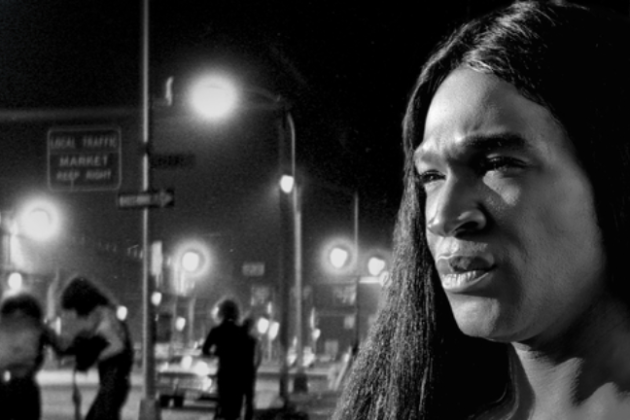
There is a raw, dangerous yet distinctly unapologetic demeanor to the grainy archival footage in the documentary film The Stroll, now streaming on HBO, where transgender sex workers bravely walk the streets of New York City and solicit potential customers cruising by in their cars. Winner of the Special Jury Award – Clarity of Vision at the 2023 Sundance Film Festival, The Stroll is the story of director Kristen Lovell’s experience living on the streets in the ‘90s and making money as a sex worker in the Meatpacking District of lower Manhattan.
When Lovell began her transition in New York in the 1990s she was fired from her job, a common occurrence for transgender women of color. Lacking other professional opportunities, and to make ends meet, she began doing sex work in an area known as “the stroll.”
More from Deadline
“It’s where trans women congregated and forged a deep camaraderie to protect each other from harassment and violence” on those lower Manhattan streets at the time, as HBO notes. Now just a historical symbol, today’s gentrified Meatpacking District is neither a meat trade hub (save for a few original meat companies now located in Chelsea Market), nor a place to do business for transgender sex workers.
For a number of reasons, Lovell wanted to move on from sex work.
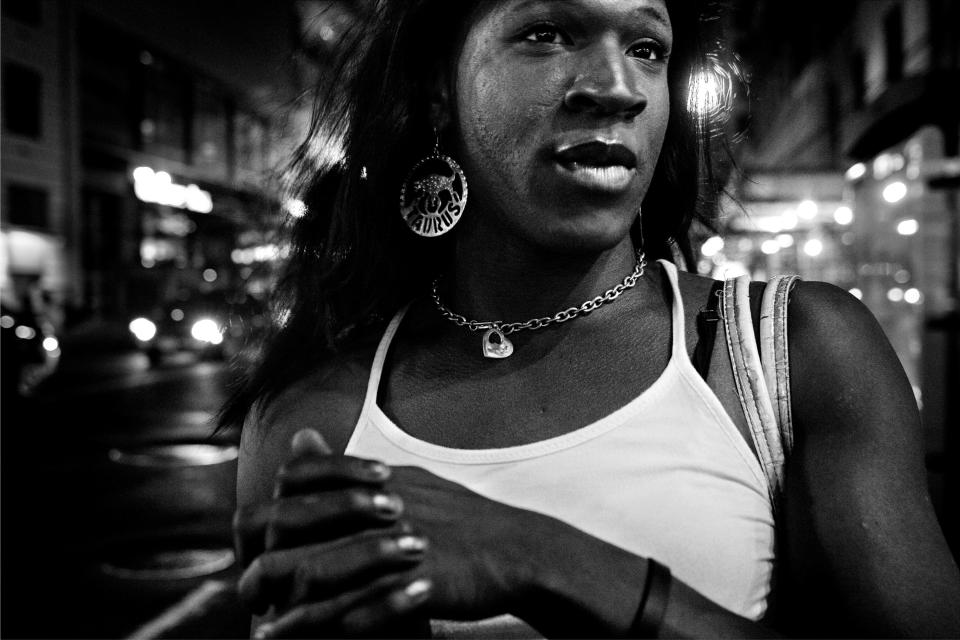
“I couldn’t go on another 10 years of this [sex work],” she says. “I was actively trying to make the changes and gain employment as a trans woman. I wanted to become a filmmaker and set out on that course as my next career path, and I did.”
The Stroll marks Lovell’s directorial debut and she teamed up with filmmaker Zackary Drucker (HBO’s The Lady and The Dale) to co-direct the documentary. She says she knew Drucker would be the right person to help glue together the pieces of her life on film. “[Producer] Matt [Wolf] introduced us and I think we instantly clicked,” says Lovell. “I knew Zackary had an affinity for trans history, and they were trans themselves. [It’s] just the epitome of what collaboration and sisterhood looks like – diversity and inclusion – it’s all the things.”
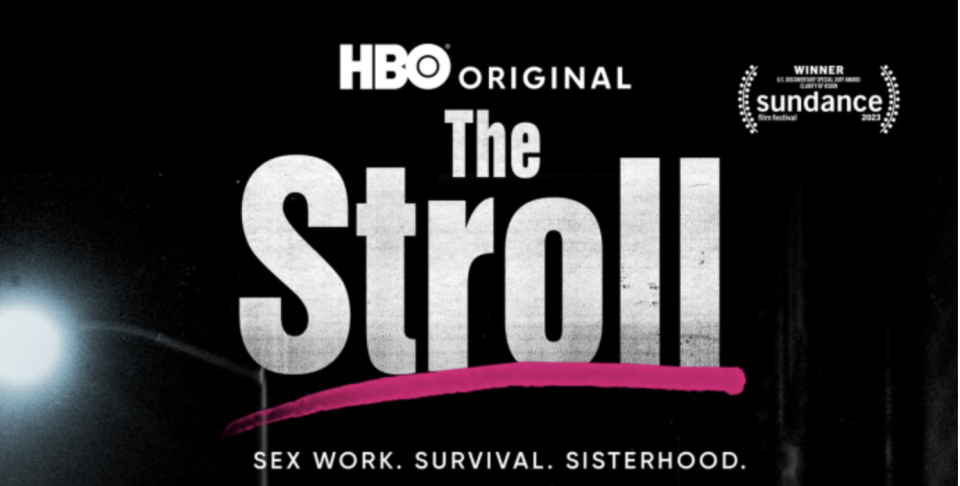
Drucker tells Deadline meeting Lovell and resonating with her story happened at a time when she was looking to start a new project. “I was finishing The Lady and The Dale in December of 2020 and kind of thinking about what was going to come next, and Matt Wolf reached out about this [The Stroll],” recalls Drucker. “I had always been a huge advocate for sex worker rights and have felt that it’s been kind of erased and omitted from trans representation in favor of a more respectability politic of the past decade. I think we have to have a more robust and complete view of trans life – and sex work has just been such an important part of trans survival for centuries. So I felt really passionate about this immediately and thought that Kristen was the perfect person to tell this story.”
Lovell says it was a long term process to assemble the archival footage of the trans sex workers and ultimately decide what would to include.

“It wasn’t until Matt [Wolf] introduced me to [archive producer] Olivia [Streisand], that they started to unearth all of these gems of the things that I hadn’t seen before, on top of the stuff that I already had,” Lovell comments. “And as Olivia kept working, more stuff started to pop up… so it was a long time.”
Adds Drucker, “Trans sex workers in the Meatpacking District are something that New Yorkers all knew about in the ‘80s, ‘90s, and aughts. So any New Yorker pretty much has a story about encounters with trans women in the Meatpacking District. And since there were so many artists and photographers in the neighborhood, it’s a very well-represented community over the years. Tons of stuff we looked at didn’t make it into the documentary.”
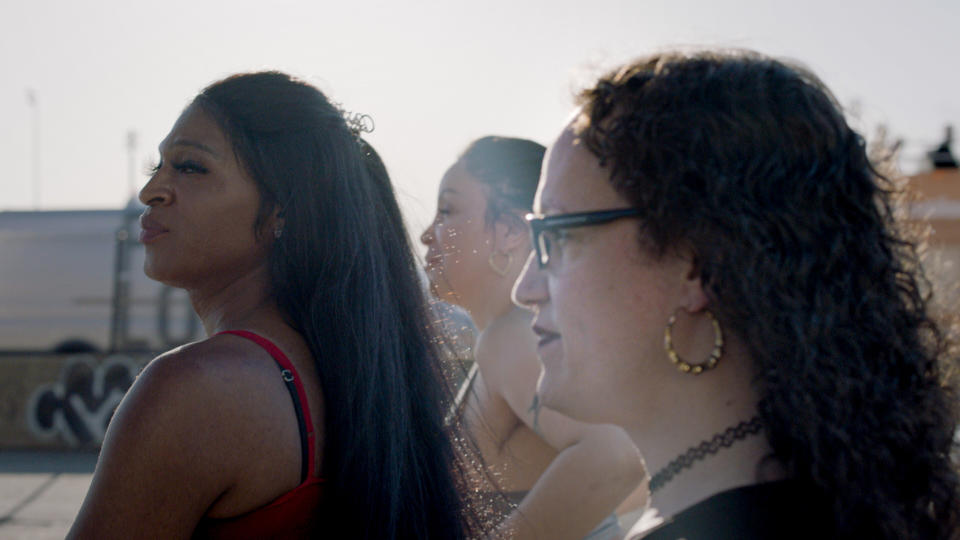
Another important component of the documentary was reconnecting with Lovell’s fellow trans sisters who worked on “the stroll” with her. Social media played a huge part in tracking them down. “I reconnected with Cashmere [featured in The Stroll] almost 10 years ago,” says Lovell. “And when we reconnected, because they de-transitioned, we talked a lot about our experiences, and the reasons why they de-transitioned. To bring Cashmere back to that area [Meatpacking District] after 20-something years was powerful. And you see her reaction to it… Before social media you thought you would never see these people again or you wouldn’t see them as much. But we followed each other on our journeys because of that shared experience.”
However, life on “the stroll” psychologically affected the women and it wasn’t easy for Lovell to get all of them back to the area that so adversely changed their lives. “Some people were deeply traumatized by the events that took place on ‘the stroll.’ A lot of trans girls either were murdered, died of HIV and AIDS and addiction, or de-transitioned and don’t want to talk about their experiences,” explains Lovell. “It took a lot of courage of the women in the film to actually stand up and say anything. So, in itself standing up to tell this story now even, is an act of revolution.”
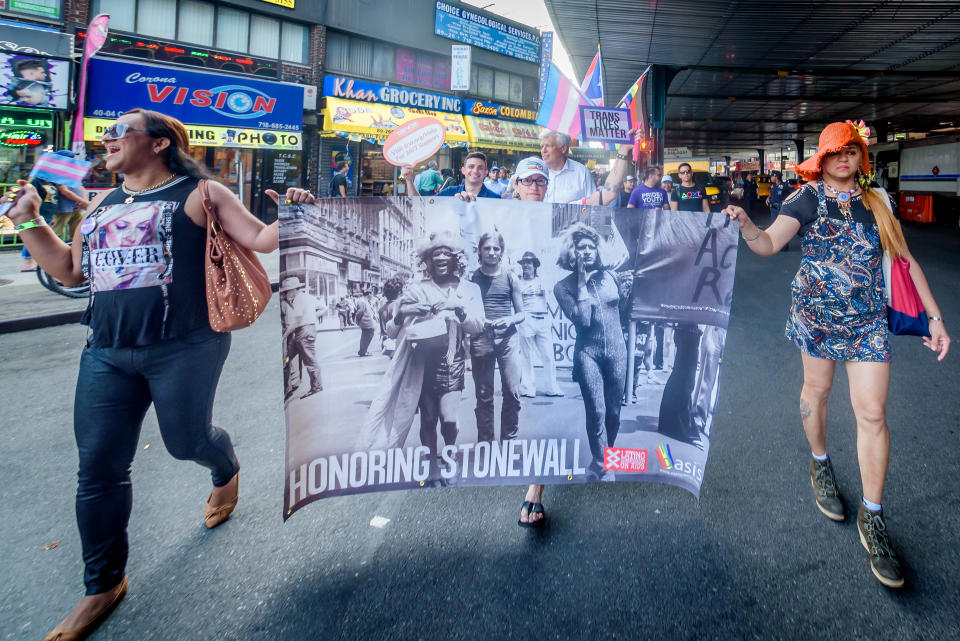
The revolution was ignited way back in the ‘70s by trans activists such as Sylvia Rivera – as seen in The Stroll – fighting for the rights of transgender people to live with dignity and respect. The fight is still on today and has faced a recent backlash – the imposition of rules preventing trans girls from competing in high school sports, or laws in many states restricting gender affirming care for young people. “I think it’s totally misguided. And misinformation is being put out there as if this depicts the life of all trans people,” says an angry Lovell. “Everything that they’re doing is unconstitutional… And I knew that this would become an issue eventually. I didn’t like part of the visibility and the transition stories because I knew that our healthcare would come under attack.”
Drucker affirms Lovell’s thoughts and further adds, “Kristen’s absolutely correct. It is unconstitutional. Many of these things that they’re proposing will not stand the test of time. Fascism and totalitarianism is always a threat. And the right is trying to dismantle our democracy by targeting women’s reproductive rights, [and the rights of] all people of color, immigrants, and queer and trans people. It does not matter what people think of our gender identities because we exist, and we can identify however we want to. And nobody can take that away from us.”
Lovell says it’s been very significant for HBO to give her the opportunity to tell the story of the life she and other trans women lived while working “the stroll.”
“It has just been so surreal and amazing,” says Lovell. “The support that HBO has poured into this film has just been undeniable. And I appreciate everything that they have done in helping me pursue this vision and helping provide the resources to do so. I will never, ever forget any of this. And hopefully I’ll be able to go on and do some more good work.”
Best of Deadline
Hollywood & Media Deaths In 2023: Photo Gallery & Obituaries
2023 Premiere Dates For New & Returning Series On Broadcast, Cable & Streaming
Sign up for Deadline's Newsletter. For the latest news, follow us on Facebook, Twitter, and Instagram.

 Yahoo News
Yahoo News 
